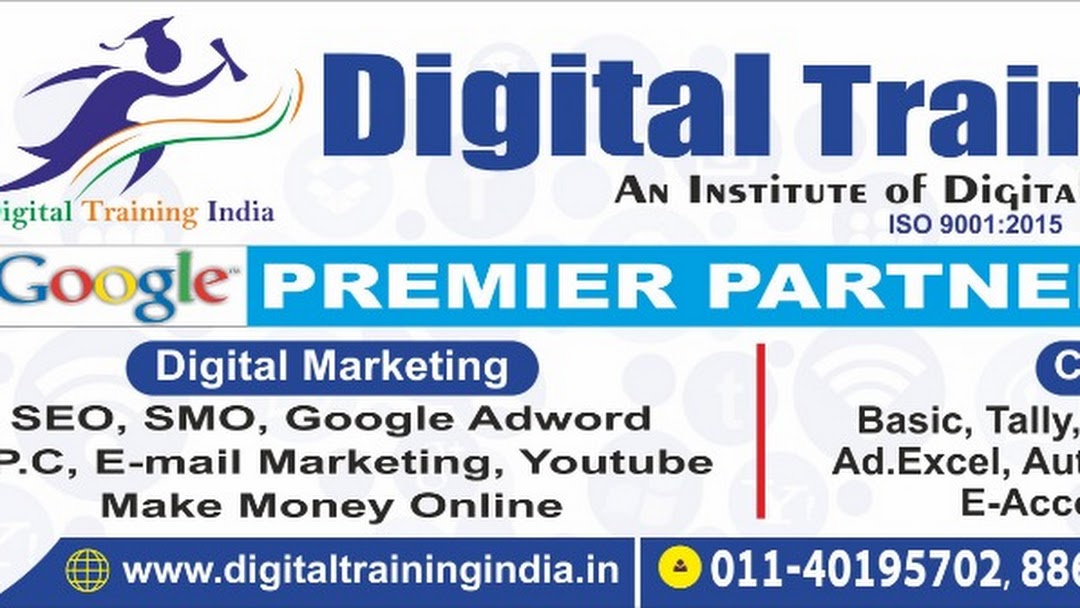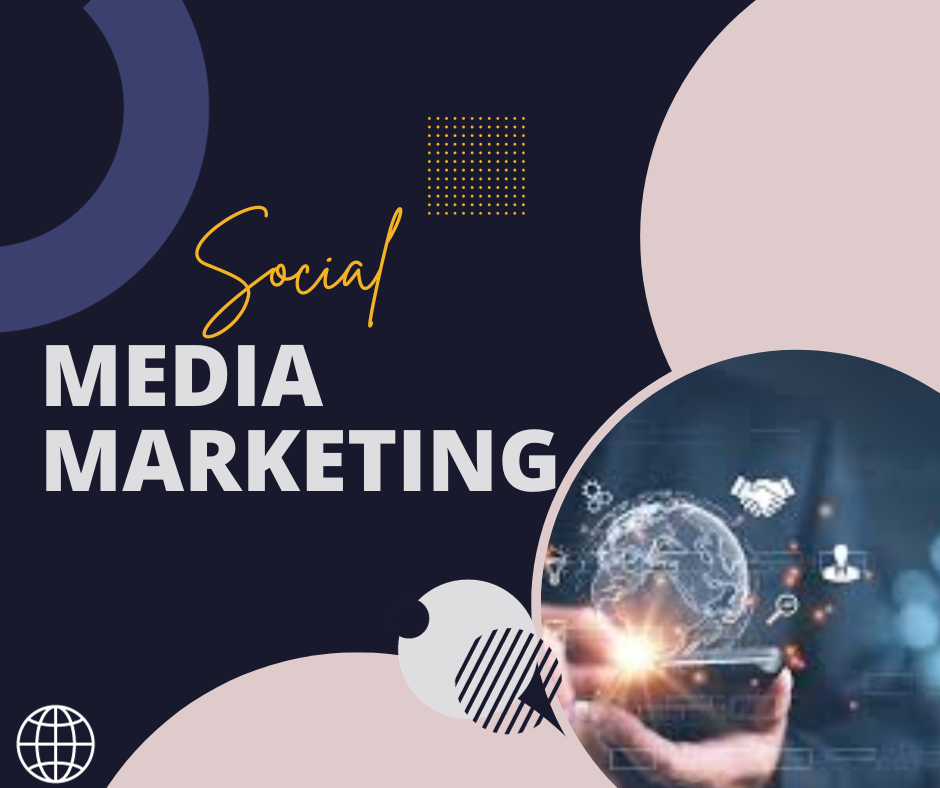 Modules of Digital Marketing
Modules of Digital Marketing
The multiple components of the digital marketing process known as Digital marketing modules come together to form an outstanding, audience-focused online marketing strategy for the expansion and improvement of company organizations. A complicated digital marketing campaign that produces significant returns must be executed by professionals in each of its modules since digital marketing is a diverse process.
The following are some essential modules in Digital Marketing:
WHAT IS SEARCH ENGINE?
A Search Engine is a software system designed to search out the information from World Wide Web
According to the user query.
SEARCH ENGINE OPTIMIZATION (SEO):
It is the process of making your Website/webpage better for search engines So that it can rank higher.
Website/web page search engine traffic may be increased in both quality and quantity through the process of search engine optimization. Rather of focusing on direct traffic or bought Traffic, SEO aims to increase organic.
Searches for images, videos, articles, news, and industry-specific vertical search engines are just a Few examples of the kind of searches that might result in unpaid traffic.
TYPE OF SEO
1. On-Page SEO
2. Technical SEO
3. Off-Page SEO
ON-PAGE SEO:
When we do multiple changes in our website, and we optimize it according to Google. Optimizing the content of web pages for search engines and visitors is referred to as on-page SEO or on-site SEO. Title tags, content, internal links, and URLs may all be optimized as part of on-page SEO.
Part Of On-Page SEO
· Keyword Research
· URL Optimization
· Title tag Optimization
· Description Optimization
· Unique Content Creation
· Hypertext Optimization
· Internal/External linking
· Anchor Text Optimization
· Plagiarism
TECHNICAL SEO:
When we solve multiple errors of our website is called Technical SEO. Technical SEO includes improving the technical factors of a website to increase the ranking of its page in the search engines.
Parts Of Technical SEO
· Sitemap XML
· Sitemap HTML
· Robots. txt. file
· Page Load time
· Optimisation of JS &CSS
· SSL certificate
· Redirection (301, 302, 401)
· Google Search console Tool
· Google disavow tool
· Google Analytics Tool
OFF-PAGE SEO:
The focus of off-page SEO is on external variables that affect rankings, such as brand mentions and back links, that take place outside of your website. Off- page SEO comprises Activities carried out outside of the actual website in order to raise a website search engine ranking. Common off-page SEO tactics include link building, promoting branded searches, and increasing.
Engagement and social media sharing.
Parts of Off-Page:
· Search Engine Submissions
· Image Submission
· PDF Submission
· PPT Submission
· Social Bookmarking
· Forum Posting
· Press Release
· Infographic Submission
· Q&A submission
SOCIAL MEDIA OPTIMIZATION (SMO):
Today, social media plays a crucial role in both the consumer and business journeys. In order to take use of social media’s many advantages, the digital marketer needs to be aware of them. One of the crucial digital marketing modules that deal with the process of figuring out what appeals to your audience and what doesn’t is social media optimization.
You must draw attention to your brand and its distinctive features. You realize the secret to effectively using social media to market your business. Most of your leads are on one or more social media sites. Effectively connect with these leads. It’s crucial to make sure your social media page is optimized. A digital marketer needs to be knowledgeable about optimization tools like Semrush, Buffer, Hootsuite, Google Insights, Howsociable, etc. and how to use them effectively.
The importance of social media for businesses today makes it advantageous for marketers to focus on this topic. Average response time, brand advocates, notifications, emoticons, dark social, peer-to-peer, handle, visual listening, and nano influencers When working with social media optimization techniques, a digital marketer should be familiar with phrases like Google Analytics and News-jacking.
You tube Monetization:
YouTube is essential for building an audience and eventually monetizing your channel. Here are some tips for creating content that stands out and attracts viewers, which is the first step toward YouTube monetization:
Identify Your Niche: Choose a specific niche or topic that you are passionate about and knowledgeable in. This will help you stand out and attract a dedicated audience interested in that subject.
High-Quality Production: Invest in good equipment for recording and editing. Ensure your videos are well-lit, have clear audio, and are visually appealing.
Engaging Thumbnails and Titles: Your video thumbnails and titles should be eye-catching and relevant to the content. These elements are crucial for click-through rates. Create Compelling Content: Your content should be informative, entertaining, or inspiring. Make sure it provides value to your viewers.
Consistency: Upload content regularly on a consistent schedule to keep your audience engaged and returning for more.
Engage with Your Audience: Respond to comments, engage with your viewers, and build a community around your channel.
SEO Optimization: Use relevant keywords in video titles, descriptions, and tags to improve discoverability on YouTube’s search and recommendation algorithms.
Collaborate: Partner with other YouTubers in your niche for collaborations, shoutouts, or guest appearances to tap into their audience. Promote Your Videos: Share your videos on social media, blogs, and other platforms to increase visibility.
Diversify Content: Experiment with different types of content, such as tutorials, vlogs, reviews, or live streams, to keep your channel fresh and appeal to a broader audience.
Develop a Unique Brand: Create a unique and consistent brand for your channel, including logos, graphics, and a channel intro.
SOCIAL MEDIA MARKETING(SMM):
What Social Media Marketing?
Social media marketing refers to using social media platforms to engage with your followership in order to develop your brand, boost deals, and ameliorate website business. In order to do this, you need to give quality material to your social media runners, interact with and hear to your followers, estimate your progress, and conduct social media advertisements.
Digital training India providing training of social media platforms (at the moment) are Facebook, Instagram, Twitter, LinkedIn, Pinterest, YouTube, and Snapchat. Also, a number of social media operation results are available to organizations to help them make the utmost of the forenamed social media spots.
For case, the social media operation platform Buffer offers a variety of tools that may be used to manage your social media marketing sweats. We wish to support you in achieving your pretensions, whether they include brand development or business expansion.
The Five Abecedarian rudiments of a Successful Social Media Marketing Plan:
1. STRATEGY
Describe your objects. What business objects may social media help you achieve?
Social media is used by some companies to spread the word about their brands, while others do it to
increase website business and profit. Which social media networks would you like to concentrate on? Facebook, Instagram, Twitter, LinkedIn, Pinterest, YouTube, and Snapchat are the top social media spots, in addition to the others formerly listed.
Social messaging networks like Messenger, WhatsApp, and WeChat are among the lower, more.
recent platforms as are Tumblr, Tik Tok, and Anchor. Picking a many Platforms where you believe your target followership is more profitable than being present on all of them when starting out.
Which kind of material are you looking to partake?
Which material will best draw in your target?
followership? Is it links, videos, or images?
Is the information entertaining or educational?
2. PLANNING AND PUBLISHING
It as easy to publish to social media as it to part take a blog post, an image, or a videotape on a social networking website.
It works exactly like participating on your particular Facebook profile. still, you should prepare your
material in advance rather than producing and participating it on the spur of the moment.
Also, you need to post engaging material constantly and at the correct times to make sure you getting the most out of your social media reach.
3. LISTINING AND ENGAGEMENT
Talk about your brand will come more current as your company and social media followers expand.
On social media, others may leave commentary, label you in their bulletins, or shoot you direct dispatches.
Indeed without informing you, people may bandy your brand on social media. As a result, you should keep an eye on social media
Addresses regarding your brand. You have the occasion to surprise and please them if its a nice comment. However, you can give If not. assistance and make a correction before a problem worsens.
4. ANALYTICS AND REPORTING
You will want to cover the progress of your social media marketing along the route, whether you are creating content or sharing in social media. Are you using social media to reach further people than you did last month?
How numerous good effects are said about you each month? How numerous druggies used the hashtag for your company in their social media posts?
5. ADVERTISING
Social media advertising is commodity you might want to suppose about when you have further plutocrat to expand your social media marketing. You can reach further people with social media announcements than just the people who formerly follow you.
These days, social media advertising platforms are so strong that you can be relatively specific about who your advertisements are displayed to.
Target cult may be created grounded on a variety of factors, including demographics, interests, and behaviors.
Using a social media advertising tool may help you automate tasks, make bulk adaptations, and ameliorate your announcements when you managing numerous social media advertising juggernauts at formerly.
E-Mail Marketing:
A form of direct digital marketing technique called email marketing makes use of emails to interact with customers. It entails sending advertisements or educational material. Email marketing is frequently used to generate leads or sales as well as raise consumer knowledge of a product or brand.
Email marketing can be a key component of a company’s marketing plan, assisting in the development of client connections and maintaining consumer interest in-between transactions. Because you are a guest in your customers’ inboxes when you use email marketing, you may interact with them more intimately.
Affiliate Marketing:
In affiliate marketing, individuals or companies promote products or services for others and earn a commission for each sale or lead generated through their efforts.Affiliate marketing is a performance-based marketing strategy in which businesses (often called advertisers or merchants) reward individuals or other businesses (affiliates or publishers) for promoting their products or services and driving traffic or sales to the merchant’s website. It’s a mutually beneficial arrangement where both parties can earn money. Here’s how affiliate marketing typically works
Affiliate marketing has become a popular way for individuals and businesses to monetize their online presence and for companies to expand their online reach. It’s a cost-effective marketing strategy because advertisers only pay when they see results. However, success in affiliate marketing often requires understanding the target audience, selecting the right products or services to promote, and effectively marketing them through various channels.
 op naturally as more people like, comment on, greatly increasing its reach.
op naturally as more people like, comment on, greatly increasing its reach.






